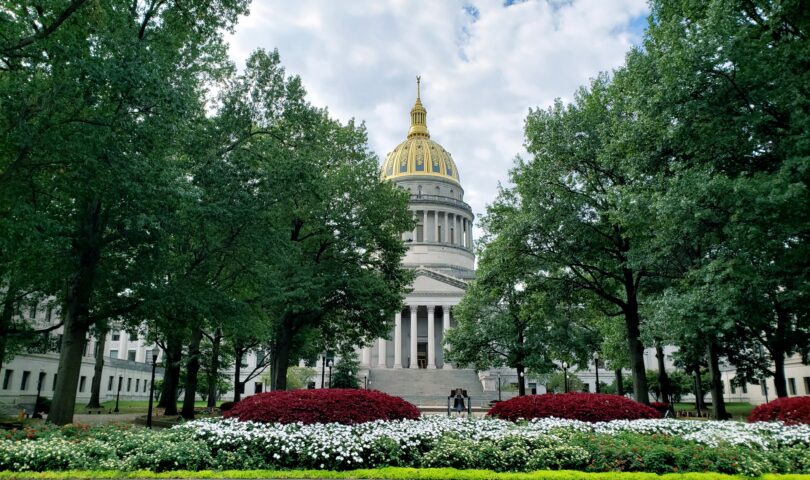After two hours of debate, West Virginia delegates passed a bill “relating to forbidding government limitations on exercise of religion.”
Discussion on the House floor sprawled across how far religious freedom extends and where discrimination begins. House Bill 3042 passed 86-12.
The bill provides a standard in court for people who contend government actions have infringed on their religious beliefs. The bill is fairly broad and doesn’t specify examples for how the standard might be applied, so that was a big element of the House discussion.
Delegate Tom Fast, the vice chair of the House Judiciary Committee, acknowledged hearing concerns that the bill represents a license to discriminate against people based on their lifestyle or is a way to allow religious objection to mandatory immunizations.
“So, ask yourself a question: What if you do have a person who truly believes according to their religion, according to their faith, that the some lifestyle is wrong? Or some state action is wrong? Perhaps according to the Koran, or according to the teachings of the Bible? What if you have that?” asked Fast, R-Fayette, while speaking in favor of passage.
“Well, this bill still does not decide who wins or loses in that case. What this does is say that if you are a person of faith, and you do have held religious beliefs that you do not have to, to back down, you do not have to accept a lifestyle or actions or activities without a fair playing field in the court system. It still doesn’t mean you win, but it does say you will have a fair playing field in the court system.”
House Bill 3042 is only a little more than a page, but its concepts are broad.
It says no state action may substantially burden a person’s exercise of religion unless it’s essential to a compelling government interest or is the least-restrictive means of furthering that compelling government interest.
If the bill were to become law, a person whose exercise of religion has been burdened may go to court over the situation. There’s a caveat that nothing in the policy could create a cause of action by an employee against a nongovernmental employer. The bill specifies that it would apply to all state and local laws.
Similar concepts were laid out in a 1988 West Virginia Supreme Court case that focused on members of the Universal Life Church who contended a standard serological test for a marriage license violated their rights of religious freedom.
Fast said court cases would weigh several questions: “Is the act or omission a true exercise of religion? Is the burden upon the true exercise of religion essential to furthering a compelling governmental interest? Is this the least-restrictive means of furthering that compelling governmental interest?”
Delegate Joey Garcia, the minority chair of the Judiciary Committee, asked a series of questions about how the policy would be applied as a practical matter. Garcia, D-Marion, described the policy as both a shield and a sword.
Garcia asked if the bill might be used to get around local nondiscrimination ordinances. He asked if Rastafarians might be able to get around state drug laws. He asked if religious groups that accept the practice of abortion might be able to make religious claims to get around West Virginia’s newly passed ban.
“You may very well be doing something with this law that you’re not intending to do,” Garcia said.
Delegate Todd Kirby, R-Raleigh, spoke against a view that the government knows best, “so the government has to be the nanny.” He added, “and in a lot of instances, the government is the problem; the government has no right to infringe on our religious beliefs.”
For example, he said, “your teachers throughout this nation, throughout this state are being forced to push the left’s agenda, the government’s agenda within the war on traditional families with such things as promoting transgenders, homosexuality, in our classrooms — our grade-school classrooms.”
He said those teachers’ religious beliefs are being curtailed. His next example was nurses.
“How about just a couple years ago: nurses being forced to be vaccinated, people that we look to take care of our medical needs when we’re in our worst conditions. For people that are very well-educated on the effects of vaccines, both the side effects and benefits, we told them you don’t have a choice; you have to get vaccinated even if it violates your most fervently held religious beliefs.”
Delegate Evan Hansen, D-Monongalia, said those examples are “instructive because it is about cases like that — specific cases relating to religion and related to discrimination where that judicial test will be used. That’s where that judicial test will be used. That’s what this bill is about.”
Non-discrimination ordinances like one in Morgantown would be a target of the policies, he said.
“We’ve got an inclusive community, an open community that makes people want to move to Morgantown to take jobs and makes employers want to come to Morgantown to create jobs. People in same-sex relationships can’t be fired from their job for that reason. People in same-sex relationships can’t be kicked out of their apartment by their landlord for that reason.”
Delegate Mike Pushkin, D-Kanawha, offered an amendment to exempt non-discrimination ordinances.
Fast argued against that.
“This bill provides a judicial test just for these nondiscrimination laws that the gentleman speaks of,” he said. “If one brings a claim under one of those laws, this bill guides the courts in the process for that very claim. This amendment would be the same as if the Legislature passed a crime law setting forth elements of the crime and then stated that the law did not apply to any federal, state or local law.”
The amendment was rejected.
TWEET @DominionPostWV




